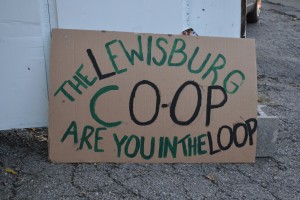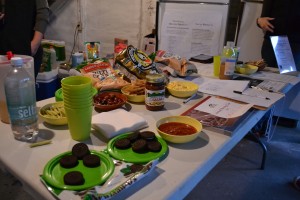Brianna Marshall
Writer
A new volunteer campaign, the Bison Service Challenge, launched this week with the goal of encouraging student contribution to the University community and beyond. Participants can register to compete in teams of up to 30 individuals under the leadership of team captains. The team that contributes the most hours per member will be the winner.
“This program was created as an effort to encourage students to give back to their local area and as a vehicle to create campus unity around a good cause,” Lynn Pierson, assistant director of community service, said.
The Bison Service Challenge is a collaborative effort of multiple campus organizations including Activities and Campus Events (ACE), Bucknell Student Government (BSG), the Interfraternity Council (IFC), the Panhellenic Council, Bucknell Outdoor Education and Leadership and the Office of Civic Engagement. With diverse and expansive leadership, coordinators hope to attract volunteers with a wide range of interests and talents that can help to expand the service experiences within the Community Service Challenge. The combined efforts of multiple organizations will help to highlight the variety of activities that the University has to offer while positively contributing to community outreach.
“It’s been awesome to see how this has come together in a short time and how leaders from different organizations have worked together to do something to bring the whole campus together and give back to the community. We’re hoping it will have a big impact,” said Nick Pistone ’13, IFC community service and philanthropy chair.
With team captain selection and pre-registration complete, it’s now time for students to join a team and get involved. Students can access Bison Service Challenge forms from the Office of Civic Engagement’s page on the University website. Additionally, sign-up information including the link for registration is being distributed via flyers throughout campus and the Message Center.
“This challenge will be a strong step in the right direction for Bucknellians as we, as student leaders, attempt to reinvigorate the higher purpose that service holds in our community. We want students to be familiar with the gift of community service,” Pat Zailckas, IFC president said.
All team volunteering contributes to reaching an overall program goal of 10,000 hours of service. Teams will have approximately two months to volunteer with the competition running from Sept.ember 29th to December 1st. If the program goal is met, a free campus event will be held to celebrate. this accomplishment.




